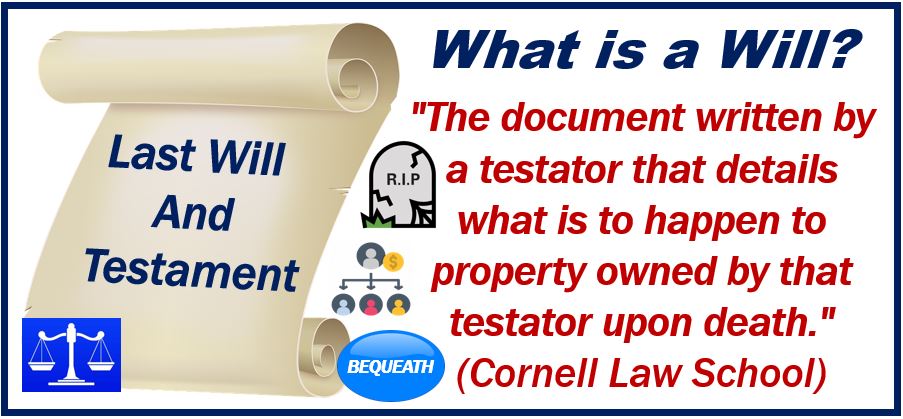Probate is a legal term. It is the process in which a last will and testament (will) is reviewed to determine whether it is authentic and/or valid. Probate includes the administering the affairs of a dead individual without a will, as well as the general administering of people’s wills after they have died. If somebody dies without a will, we say they are intestate.
The term refers to the whole process of administering a deceased individual’s estate. Estate, in this context, refers to all of a person’s possessions when they die. If the person who has died has left a will, it will name its executor, i.e., somebody to administer their estate.

Probate involves organizing a dead person’s possessions, assets, and money, and distributing them after paying taxes and debts as inheritance. The term also includes paying off outstanding bills and debts, such as mortgages.
According to Investopedia, probate is the legal process of reviewing a will to ensure it’s valid and authentic. It also refers to the broader procedure of managing a deceased person’s estate, whether or not they left a will.
Simple definition
Put simply, probate has two meanings:
- Obtaining permission to carry out the wishes contained within a deceased person’s will.
- The process of settling their estate.
Granting of probate
The first step in administering a deceased person’s estate is the granting of probate. Claims are resolved and the property is distributed according to their will.
A grant of probate is a legal document establishing that the person is dead, who their personal representative will be, whether a will exists, and if so, whether it is the deceased’s last valid will.
According to nidirect.gov.uk, after someone dies, you may need to secure a Grant of Probate, or if there isn’t a Will, a Grant of Letters of Administration. This official document gives you the authority to manage the deceased person’s estate. You can apply for the grant yourself or use a solicitor to help you with the process.
The will’s executor uses the grant of probate to show that they have the authority to sort out finances and access funds. It also shows that they have the legal authority to share out the testator’s assets as set out in their will. A testator is somebody who has made or is making a will.
Etymology of probate
Etymology is the study of the origin of words and how their meanings evolved over time.
The term probate emerged in the English language in the fourteenth century with the meaning “official proving of a will.” It came from the Latin word Probatum, which meant “a thing proved.”
In the 1560s, the English word To Prove emerged. It developed from the English word Probate. The Latin word Probare meant “to make good, esteem, represent as good, make credible, inspect, judge by trial.”
What is a will?

A will is a document in which a person states where all their possessions and money should go after they die, i.e., who should inherit them. The terms will, last will and testament, and testament have the same meaning.
When writing your last will and testament, you need to take great care. Most jurisdictions stipulate that testators must follow certain steps to properly execute their document. In fact, if they don’t, it is easier for people to challenge it or make it invalid.
